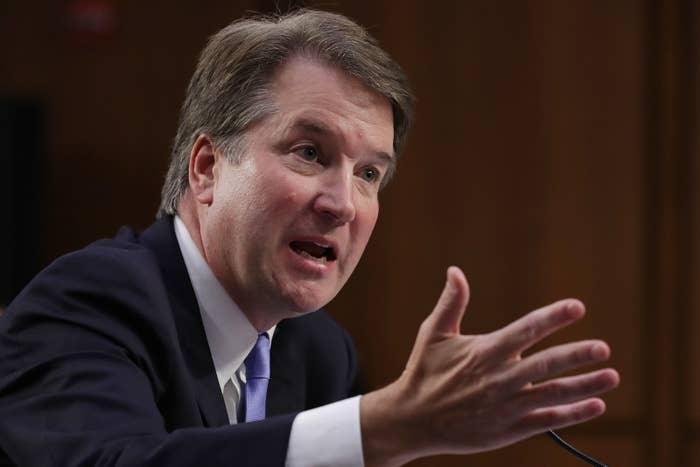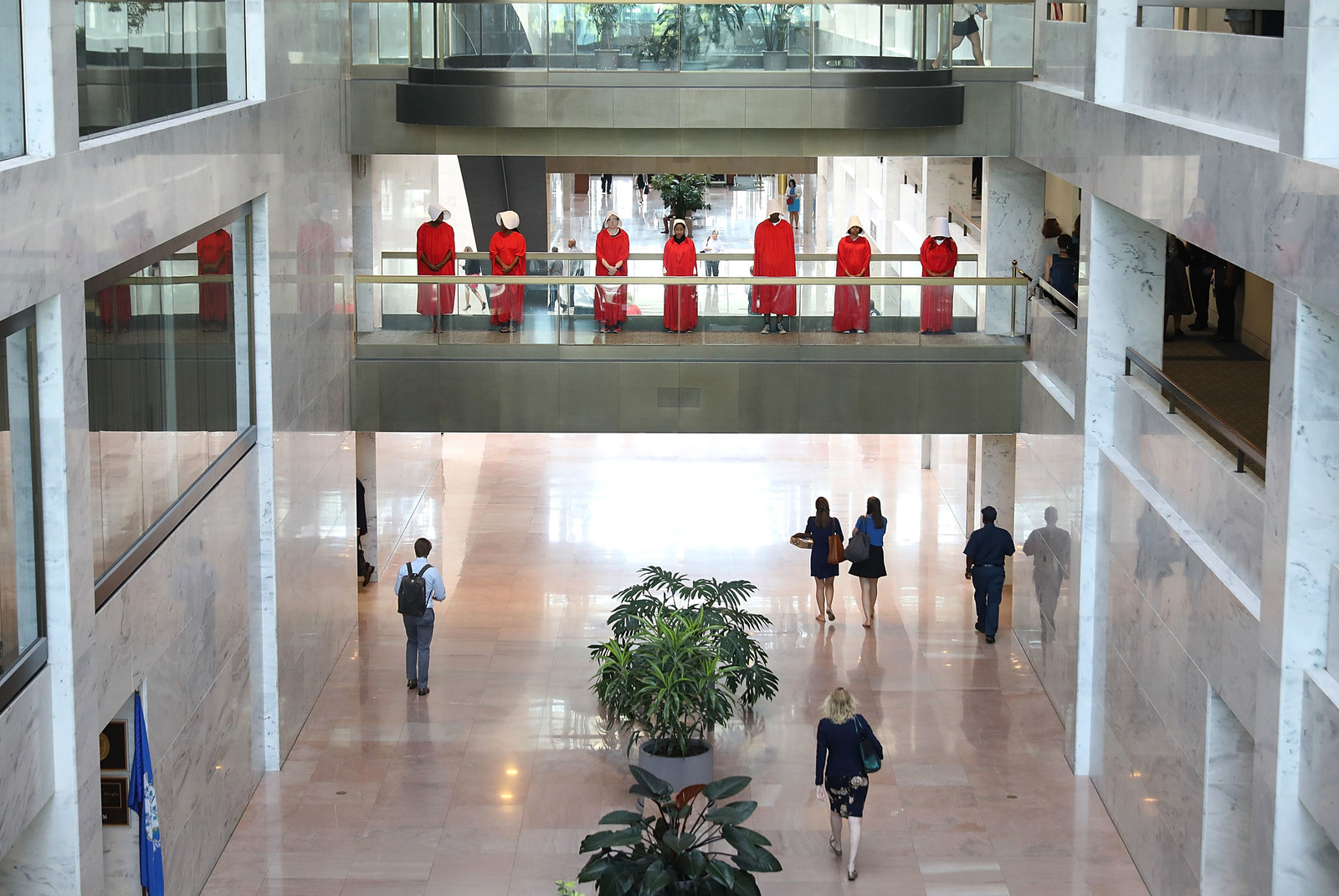
In the midst of the third day of Judge Brett Kavanaugh’s Supreme Court confirmation hearing Thursday, a tweet from a Planned Parenthood communications director accusing Kavanaugh of calling birth control "abortion-inducing drugs” quickly went viral.
Friday, with the tweet and others like it still gaining traction, the White House told BuzzFeed News that it believes this was “a total misinterpretation” of Kavanaugh’s statement, and that what he said in the hearing “didn’t indicate a personal view” on contraception.
The tweet referred to Kavanaugh’s response to a line of questioning from Sen. Ted Cruz about his past rulings on issues of religious freedom, including the 2015 case, Priests for Life v. Department of Health and Human Services.
“That was a group that was being forced to provide a certain kind of health coverage over their religious objection to their employees,” Kavanaugh said. “In that case, they said filling out the form would make them complicit in the provision of abortion-inducing drugs that they were as a religious matter objecting to.”
BIG FLAG: #Kavanaugh just called birth control "abortion-inducing drugs"
In fact, Priests for Life, a Catholic, anti-abortion organization, said in its complaint that it opposed “impermissibly facilitating access to abortion-inducing products, contraceptives, and sterilization,” through what is commonly referred to as “Obamacare’s contraception mandate.”
In his response at the hearing, although he was citing some of the same language used by the Priests for Life, Kavanaugh seems to have left out the extent of Priests for Life’s opposition to the contraception mandate by only referring to birth control products like emergency contraception or intrauterine devices (IUDs), which some anti-abortion and anti-contraception groups label “abortifacients.” The vast majority of medical professionals disagree with this assessment, saying that IUDs and similar forms of contraception do not “induce abortion” but prevent pregnancy. Likewise, there is no evidence emergency contraception “induces abortion” but rather prevents fertilization.
But the White House insists this was not an indication of his personal beliefs about whether all birth control is “abortion-inducing.”
“He didn’t indicate a personal view,” White House Principal Deputy Press Secretary Raj Shah told Buzzfeed News in an email, also pointing to his own tweet on the issue.
“It’s a total misinterpretation,” another White House spokesperson said of Sackin’s tweet over the phone Friday. “This essentially is yet another attempt by the Democrats to smear Kavanaugh’s exemplary record as a mainstream independent and even-handed justice.”
Sackin, however, stands by her tweet.
“In the hearing, he referred to birth control as abortion-inducing drugs. That was the clearest answer he has given on reproductive health thus far,” she told BuzzFeed News Friday.
“He could have said they disagreed with providing contraception because they are morally opposed to that, and that would have been accurate. But instead he chose to refer to it as ‘abortion-inducing drugs,’” Sackin continued. “That is a coded phrase anti-abortion groups use all the time and it signals more about his worldview, which is why we are concerned.”
“It’s incredulous to pretend that this is someone who does not have some sort of philosophy on reproductive health,” Sackin said.

Despite Kavanugh being careful not to state a direct opinion on abortion, contraception, or Roe v. Wade during his three-day appointment hearing, both abortion rights and anti-abortion groups have campaigned around the assumption that he is an anti-abortion judge, spending millions of dollars on organizing actions and ads surrounding his past opinions on abortion.
His past actions do seem to indicate a restrictive view on abortion rights. For example, in a 2017 case, Garza v. Hargan, he wrote that the government had an interest in "favoring fetal life … and refraining from facilitating abortion." In a 2003 email leaked on Thursday, Kavanaugh questioned how “widely accepted” it was that Roe v. Wade is “settled law,” given that the Supreme Court “can always overrule its precedent.”
Still, the White House insists that any confusion over his answer about the Priests for Life case was due to the limited time for his responses to questions.
“He was very limited on time and … attempting to quickly explain his dissent,” a spokesperson for the White House told BuzzFeed News. “The best way to see what he wrote there is to look at his dissent. In that, he states the position of Priests for Life.”
In Kavanaugh’s dissent in the Priests for Life case, he was more specific and careful in his language, writing that Priests for Life “complain that submitting the form contravenes their religious beliefs because doing so, in their view, makes them complicit in providing contraceptives, including some that they believe operate as abortifacients.”
“When he was referring to that in the hearing, it clearly wasn’t a blanket description of birth control,” the White House spokesperson added.
Friday was the last day in Kavanaugh’s hearing. The Judiciary Committee is expected to vote on sending Kavanaugh's nomination to the full Senate next week, at which point the Senate would hold a debate and a final vote on the president’s nominee.
